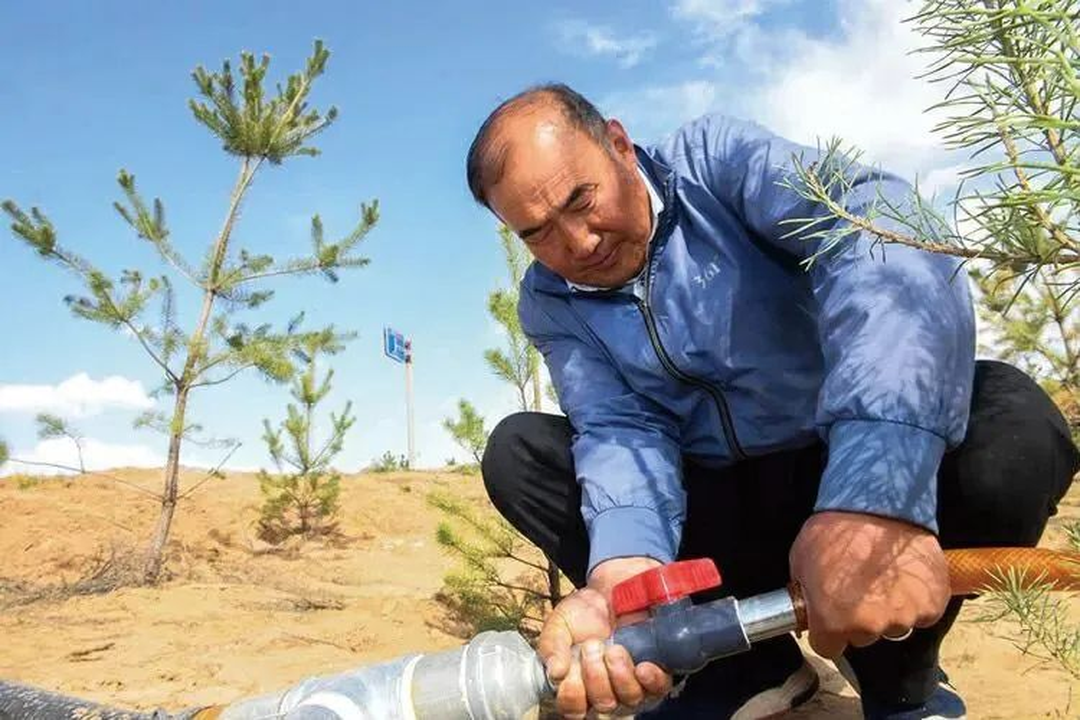In Bayan Wusu Gacha, Angsu Town, Etuokeqian Banner, Inner Mongolia, on this land at the northern edge of the Mu Us Sandy Land, 78-year-old Wulijidelige has spent fifty years writing a legend of "turning barren sand into an oasis" and has also become one of the 2024 National Top 10 Eco-Environmental Volunteers.

As a native herdsman, Wulijidelige was influenced by his parents' tree-planting efforts since childhood, and a "seed of green" had long been planted in his heart. In 1972, shortly after getting married, he saw that 7,000 mu of his 8,500-mu pasture was swallowed by yellow sand, and the 1,500 mu of grazable grassland continued to degrade—this strengthened his determination to control desertification. Since then, he has led his family to embark on the journey of desertification control: when there were no vehicles to transport saplings, they relied on livestock to carry them or carried them by hand; when they had no money to hire people, they helped each other with neighbors. When hungry, they ate dry rations; when tired, they lay on sand ridges. Even though the saplings were buried by yellow sand again and again, he never stopped. After his parents grew old, he took his son to carry on the mission. With a total investment of over one million yuan, he finally covered 6,500 mu of barren sand with green, planting vegetation such as sand willows, Caragana korshinskii, and poplars.
Wulijidelige deeply understands that "the green from one person is not as good as the green from all people". After the government introduced the ecological compensation policy in 2004, he took the initiative to take the lead. With the support of the town government, he gathered farmers and herdsmen who were willing to control desertification but lacked technology, shared his own experience, and also invited experts to carry out training. Driven by him, a wave of greening emerged in Gacha, and finally the vegetation coverage rate reached 97%, making the green mountains and clear waters reappear. During the advancement of rural revitalization, he strived to take the lead in developing the collective economy and refining policies that benefit the people; when the volunteer service team of Gacha's New Era Civilization Practice Station was established, he joined it immediately and also actively participated in the 100,000-mu Caragana korshinskii planting campaign in Angsu Town. "This year may be the last year I plant trees, but my son and grandson will continue to do so." In spring, Wulijidelige's figure—holding a spade and carefully banking soil—against the lush grassland, has become the most touching perseverance on this land.
(Note: The content of this article is from the Ministry of Ecology and Environment)








